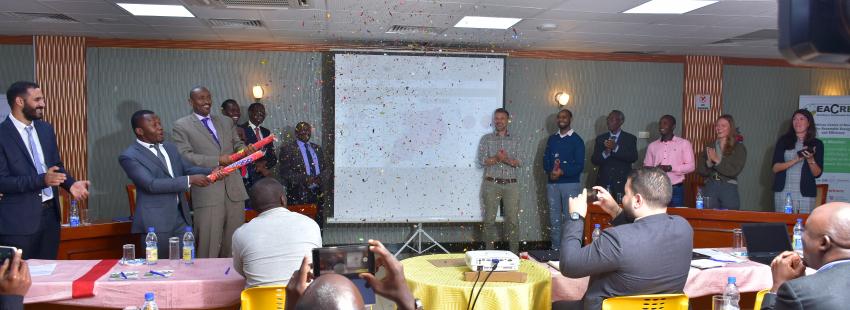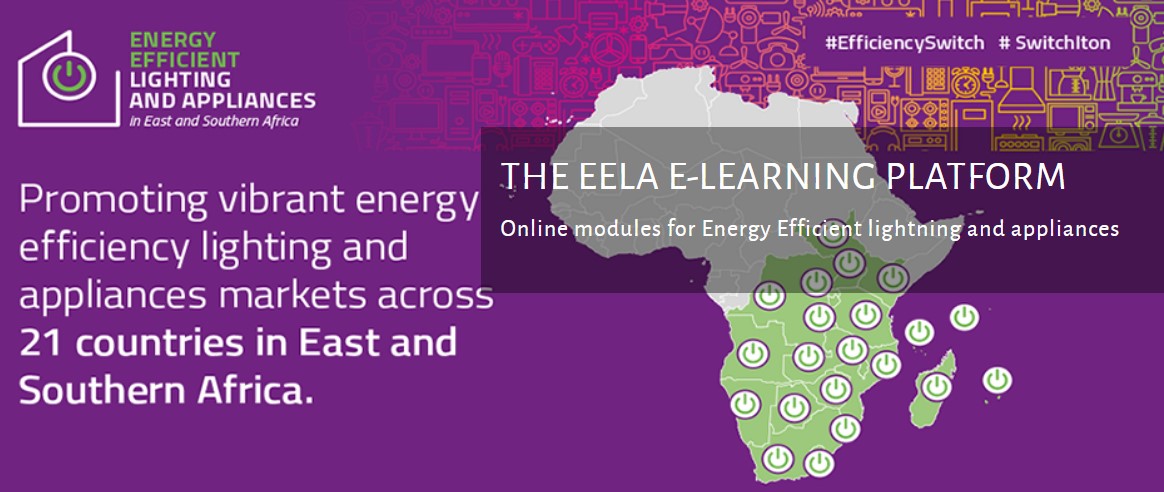EACREEE, WRI Launch the Energy Access Explorer – A new online data platform to drive market development for rural decentralized renewable energy solutions in East Africa
KAMPALA (September 4, 2019) — The World Resources Institute (WRI), in collaboration with the East African Centre of Excellence for Renewable Energy and Efficiency (EACREEE), the Energy Sector GIS Working Group, the Africa-EU Energy Partnership (AEEP), the United Nations Industrial Development Organization (UNIDO), and other partners launched the Energy Access Explorer. The East African angle of the tool was presented to policy makers, planners, entrepreneurs, financiers and donors during a regional workshop, organized on 4th September 2019 at Hotel Africana in Kampala, Uganda.
The Explorer aims to reduce knowledge and planning barriers for the development of decentralized renewable energy markets in Sub Sahara Africa. The online, open-source, interactive platform allows public and private key stakeholders to undertake market intelligence by combining data on electricity demand and infrastructure, renewable energy resources and other socio-economic data.
The tool comes timely, since still around 840 million people worldwide do not have access to electricity services and most of them reside in rural and peri-urban areas of sub-Saharan Africa. In East Africa the numbers are staggering: nearly 13 million people in Kenya (25%), 38 million people in Tanzania (68%) and 31 million people in Uganda (78%) lack access to electricity services. Decentralized renewable energy solutions (e.g. mini-grids, stand-alone systems) will play a major role in making universal access to electricity services a reality by 2030.
Without access to energy, the world won’t be able to meet development outcomes on health, poverty, gender, education and more. Energy Access Explorer provides data to help strengthen the links between energy access and livelihoods. “When vaccines can be refrigerated and health clinics can operate around the clock, more people are healthy. When lights stay on at home as well as at school, children can finish their schoolwork. And when food can be kept cool and fresh for longer, farmers can sell more produce and fewer people go hungry,” said Andrew Steer, President and CEO, World Resources Institute. “Energy Access Explorer will help connect energy demand with supply in a way that’s never been done before to close the energy access gap, which is vital to achieving the Sustainable Development Goals.”
In his opening remarks during the launch, Prof. Mackay Okure, the Interim Executive Director EACREEE noted that “following the launch of the Energy Access Explorer, EACREEE would like to pursue development of a regional standardized energy data collection, analysis and management system for feeding into the Energy Access Explorer. This will provide EAC Partner States the basis for strategic interventions, ascertaining their specific energy issues in order to develop context specific, sustainable long term programmes or projects that are relevant and driven by the needs of the communities. He appealed to the development partners to support EACREEE in this initiative”.
Mr. Bruno Otto, the Uganda Country Representative for the United Nations Industrial Development Organization (UNIDO) commended WRI for supporting the development of this platform. He informed the gathering that EACREEE is part of the Global Network of Sustainable Energy Centres, which coordinated by UNIDO, with support from the Austrian Development Agency and other partners. UNIDO is also supporting all of them in the establishment and maintenance of GIS platforms for monitoring the development of sustainable energy and other related infrastructures. Already in 2010, UNIDO supported the creation of the ECOWAS Observatory for Renewable Energy and Energy Efficiency in West Africa.
The Energy Access Explorer shows that there is significant renewable energy potential in unserved and underserved areas of East Africa. For example, data on Energy Access Explorer reveals that clean energy can help provide reliable power to vitally important facilities like schools and hospitals, which often lack stable electricity or rely on expensive back-up power systems like diesel generators:
-
82% of areas housing Kenyan schools and healthcare facilities have strong solar power potential and 68% have strong hydropower potential;
-
98% of areas housing Tanzanian schools and healthcare facilities have high solar potential and 69% have strong hydropower potential; and
-
93% of areas housing Ugandan schools and healthcare facilities have high solar potential and 60% have strong hydropower potential;
Energy Access Explorer includes an Assistance Need Index, based on energy demand, economic activity and access to infrastructure and resources. It shows that 35% of Tanzania’s high-solar-potential areas are located where donor aid is needed most and 51% of the population is in areas where donor aid is needed could directly benefit from small hydropower.
“To effectively plan for expanding electricity access, we need more data on the demand side - not just on supply. Thanks to Energy Access Explorer, which provides satellite data and cutting-edge technology, we can achieve a better understanding of where there's a market for solar home systems in East Africa and provide lighting, phone charging, TV, and radio to more unserved and underserved people,” said Denis Bomugisha, Data Product Manager at Fenix International.
Until now, electricity planners and suppliers have often been disconnected, using different tools and metrics to determine where supply was needed, versus where renewable energy could be installed. Energy Access Explorer was specifically designed to overcome this hurdle by combining more than 20 data sets on energy potential, population density, topography, income distribution and more. Going beyond traditional tools to include critical infrastructure like schools, hospitals, and farms will dramatically increase the effectiveness of electricity planning to bring energy where it is needed most. Initial data comes from Uganda, Tanzania and Kenya, with plans to take the platform global over time.
“Energy Access Explorer’s data and analysis enables entrepreneurs and off-grid developers to identify opportunities to expand their markets by visualizing where customers are located and where demand for electricity may be high” said Mr Benson Ireri, Africa Lead Energy Access, WRI. By demonstrating where there is demand, the platform enables investors and development finance institutions to determine where their funding for electrification can be most impactful.
“The energy access gap globally has been narrowing, but slowly, and integrating energy planning is essential for any community development program to succeed,” said Jeffrey Prins, Head of the Renewable Energy Portfolio, IKEA Foundation. “To provide sustainable energy to health clinics, schools and agricultural facilities, we need robust data on where energy needs are and how they are expected to grow into the future. With Energy Access Explorer, World Resources Institute provides a groundbreaking, much needed tool that will make access to renewable energy easier, quicker, more affordable and more inclusive.” Noting the great potentials of the Energy Access Explorer, Mr. Rashid Abdallah the Executive Director of Africa Energy Commission (AFREC) stressed the importance of cooperation and synergies between the African institutions and development partners to strengthen such innovative platforms which can assist in bridging the energy access gaps in Africa.
Mr. Elsam Turyahabwe, Senior Energy Officer at the East African Community Secretariat noted that the life of the Energy Access Explorer requires continuous supply of information and data, which are collected in harmonized from all the EAC Partner States. He encouraged EACREEE and WRI to pursue this as the next step and appealed to the development partners and support EACREEE to pursue this course.
Links







